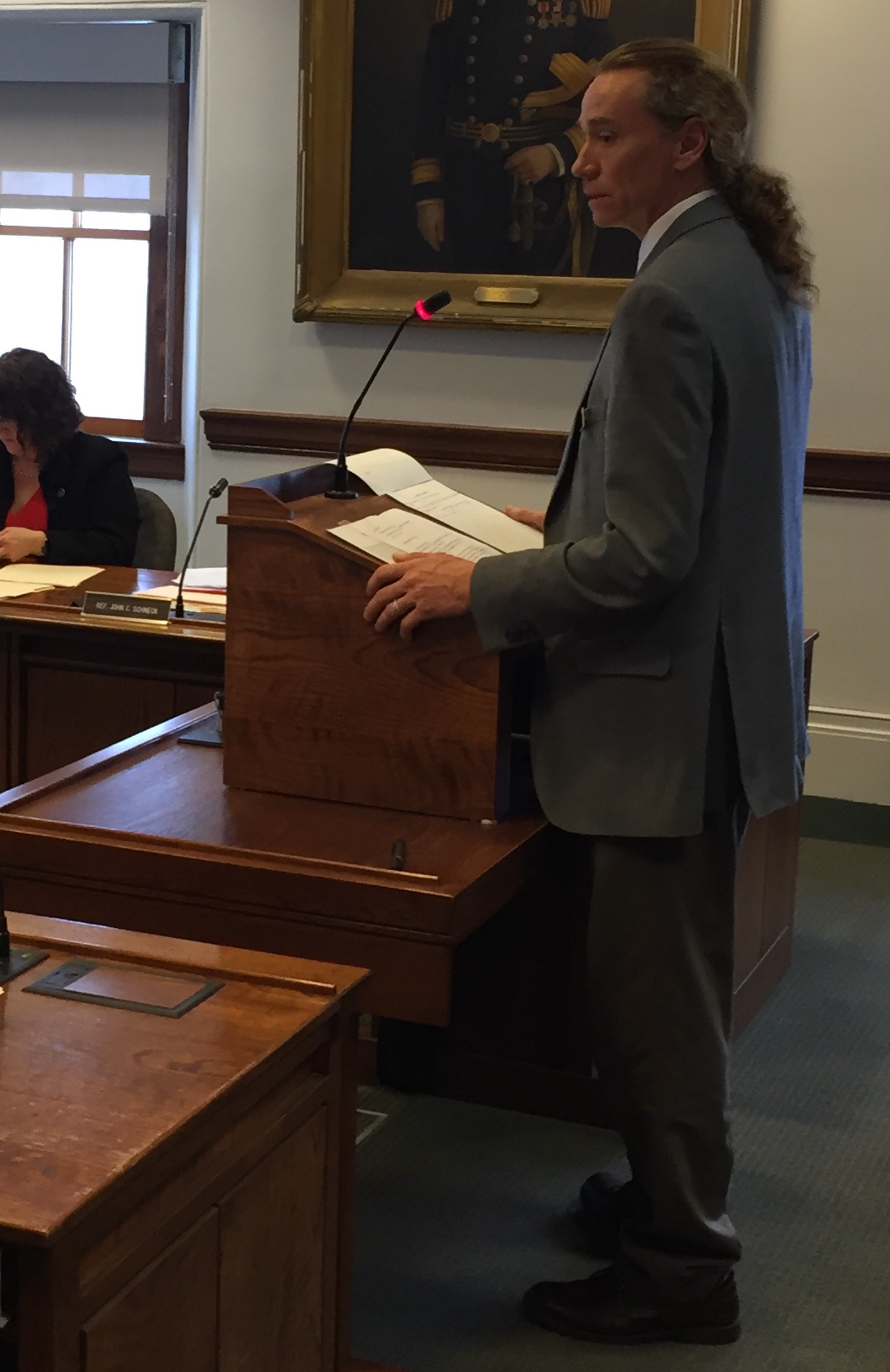Legislators Introduce Bill to Establish Open Primaries in Maine

After the citizens of Maine voted ‘yes’ to establish Ranked Choice Voting in the state, the legislature is now working on a bill that would introduce statewide open primaries to the electoral process.
During the 2016 election, Maine held caucuses instead of primary elections, in which around 48,000 Democrats and 19,000 Republicans participated across the state. On previous presidential elections, voters participated 2.5 times more than in 2016, which led the legislators to push for a system that can boost voter participation.
Representative Kent Ackley presenting Bill L.D. 78 during the public hearing.As of now, Mainers who want to participate in the taxpayer funded primaries are required to join a political party with recognized status. According to the organization Open Primaries, 37% of Maine voters are not enrolled in a political party, which means roughly 368,000 voters are barred from participating in the electoral process that is funded by taxpayer money. Bill L.D. 78 would remove that barrier, allowing unenrolled voters to participate without the need to affiliate with a party they does not feel represents them.
Open Primaries, 37% of Maine voters are not enrolled in a political party, which means roughly 368,000 voters are barred from participating in the electoral process that is funded by taxpayer money. Bill L.D. 78 would remove that barrier, allowing unenrolled voters to participate without the need to affiliate with a party they does not feel represents them.
Bill L.D. 78 was introduced by Representative Kent Ackley and Co-sponsored by Representative Owen Casás, the only legislators in Maine who are not members of a political party. The independent representatives are aware of the barriers that closed primaries put on independent candidates who want to pursue a career in Maine’s legislation. Talking to Representative Casás, he pointed out the reasons why he’s behind open primaries:
“I'm supporting open primaries for a range of reasons. As a military Veteran, I'm sensitive to issues related to participation in Democracy and am concerned about the declining levels of civic engagement. As a lifelong Independent, my tax dollars have gone to funding elections that I am barred from participating in because I choose to not enroll in any party. I have also been disheartened at the level of dysfunction in the two-party system. As the parties continue to elect extreme candidates, we move further away from the "sensible center." Open primaries is an opportunity to moderate party candidates, forcing them to play toward the center in the primaries versus only in the general election.” – Rep. Owen Casás
But Ackely and Casás are not alone in this effort. The bill is also co-sponsored by Republican Representative Roger Kane, and it has the expressed support of former Republican U.S. Representative David Emery. In a statement published by mainepublic.org, Emery told the Legislature’s Veteran and Legal Affairs Committee why having open primaries would be good for Maine:
“I think that the time has come for the Legislature to start thinking about ways that we can make the process more inclusive and allow independent and unenrolled voters to participate.” - Rep. David Emery
On February 7th, the bill was introduced in a public hearing where sixteen people gave testimony in support of it. Unlike the past legislative year, when there was an attempt to introduce open primaries which failed to reach the senate floor due to lack of support, this time, the bill has both public and bipartisan support, sparking a good debate and conversation on the matter.
Adam Pontius, a young Republican from Portland who ran for the state senate in 2016, expressed in his testimony why open primaries are necessary:
“The 37% of Mainers who are unenrolled are so because they do not identify with any of the established parties and choose to keep their own counsel on politics. The candidates chosen in party primaries are supposed to represent unenrolled voters every bit as much as they represent voters within their own party.”
The open primaries bill is currently in the first stage of becoming a law. Following the public hearing, the bill will go through a workshop and after that it will be submitted to a vote by both the House of Representatives and the Senate.
Want to learn more about the importance of establishing open primaries? Here are some of the bill's talking points:
- 70% of Maine elections are decided in the primaries. Nearly 4 out of 10 eligible voters are independents, and are thus prohibited from participating in these elections.
- 50% of millennials identify as independents and don’t want to join a political party. Parties can either choose to alienate many of this generation of voters, or they can open primaries to make democracy stronger and the parties relevant for a new generation of Americans (PEW, March 2014).
- 89% of Mainers believe that state government doesn’t work for them. Closed primaries prevent the largest group of voters in Maine from participating in elections that help to determine who leads our state. They only exacerbate the problem. (Schoen, September 2016).
- Representative democracy works better when more citizens vote. Voter participation in primary elections is at all time lows. We should be working to encourage more participation in elections, not working to keep citizens who want to participate from doing so.



